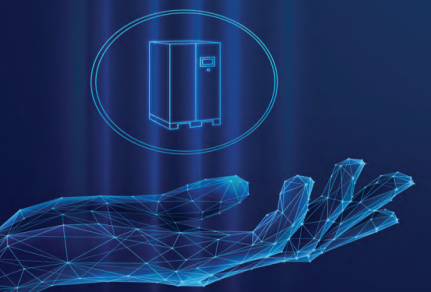How compressed air is shaping a smarter, greener future for industry

The latest air compressors come with specific features aimed at avoiding downtime. These include intelligent temperature control systems that regulate the thermostatic control valve and the VSD fan to ensure that the compressor operates at all times with an optimal oil injection temperature. This increases reliability by eliminating the risk of condensation in the element. Meanwhile, smart reliability-boosting features such as Limp Mode ensure uptime even when the machine needs service. This functionality limits the compressor’s operational parameters, such as reducing the maximum pressure or flow rate, to minimise strain on the system and prevent potential damage while allowing limited operation until the issue can be resolved.
Finally, there is the Boost Flow capability - a feature in some VSD air compressors that temporarily increases the maximum air flow output beyond the standard capacity to meet short-term high demand. This allows the compressor to deliver additional airflow when needed without compromising overall system stability.
These advances have been integrated into modern air compressors to boost reliability – and, therefore, efficiency and sustainability. Ultimately, equipment that lasts longer, runs better and doesn’t break down is better for the environment and the bottom line.
Making the most of artificial intelligence
But where next? If technology never stands still, then how will air compressors embrace the opportunities brought by new systems and concepts such as artificial intelligence?
Companies like Atlas Copco already offer guarantees on air compressor availability, with the latest guarantees promising 98% uptime. To maintain that figure, and even go higher, the integration of AI will likely play an increasingly important role, mainly through the development of self-learning air compressor machines, autonomous operation and predictive maintenance. Automation can bring many advantages to manufacturers, including higher productivity (machines don’t get tired), greater accuracy and consistency and lower costs. In the future, that might usher in the concept of so-called ‘dark factories’, which are fully automated sites where production happens without human intervention.
To make this concept a reality, Atlas Copco says it is committed to long-term innovation, investing 4% of annual total revenues in research and development. This will ensure that air compressor technology becomes even more efficient and reliable, helping end users embark on a transitional journey to Net Zero operations
Compressed air: a bright future
In conclusion, compressed air is an indispensable utility, powering many applications across various industrial sectors. The market is on an upward trajectory, driven by the ongoing pursuit of energy efficiency and technological advancements. Integrating VSD technology, intelligent control systems, and remote monitoring reflects the industry’s commitment to innovation, addressing energy consumption and reliability needs.
Looking forward, the rapid ascent of automation and artificial intelligence promises to revolutionise air compressor technology further, guiding the industry towards more sustainable and efficient operations. This will be achieved through increased collaboration between industry stakeholders, policymakers, and technology providers, driving further advancements in innovation in compressed air.
1 https://www.kingsresearch.com/air-compressor-market-
154#:~:text=The%20global%20Air%20C ompressor%20Market,4.76%25%20from% 202023%20to%202030
-
SMART Manufacturing & Engineering Week
04 - 05 June, 2025
NEC, Birmingham UK -
PPMA 2025
23 September, 2025, 9:30 - 25 September, 2025, 16:00
NEC, Birmingham UK -
Advanced Engineering Show 2025
29 October, 2025, 9:00 - 30 October, 2025, 16:00
NEC, Birmingham UK










